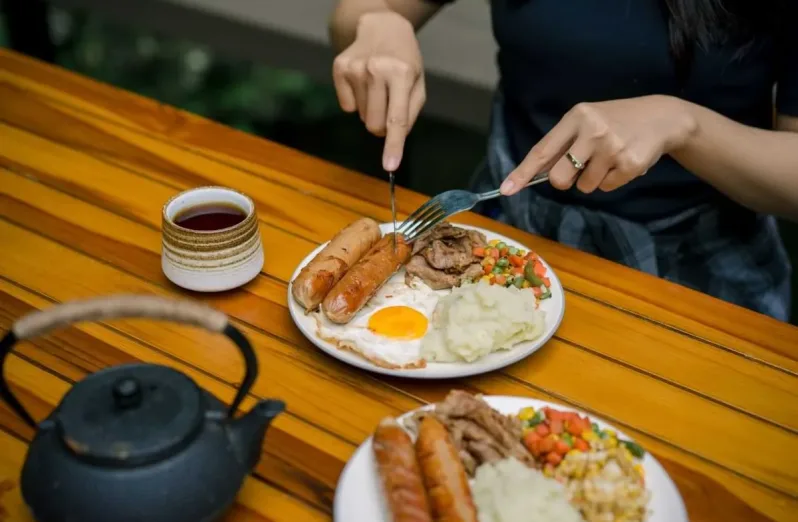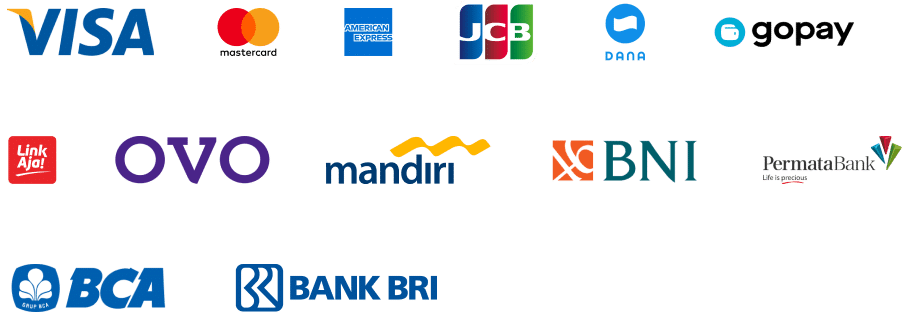Why does it feel so sinful to take a bite of your favorite, sugar-glazed donut? Why does intermittent fasting feel so hard and painful, when others prove it to be the most effective form of weight loss?
Food is essential to our existence; it provides sustenance, pleasure, and a means of connection with others. However, our relationship with food is far from straightforward—it is a complex interplay of emotions, cultural influences, and societal norms.
It’s not black and white either. We eat good food, but then we feel guilty about it. We try to eat more healthily, but then we fall into the abyss of restricting ourselves from anything but low-calories, bland food.
Over time, our perceptions and attitudes toward food have evolved, giving rise to various challenges that impact our food well-being.
Food Well-being: Between Food and Guilt

Guilt that comes with food has become all too familiar in the modern world. In an age where the pursuit of an idealized body image is rampant, many individuals feel guilty or shameful with their food choices.
Societal pressure only worsens it up by labeling specific diets as “healthy” or “clean” while demonizing others as “unhealthy” or “sinful”.
The media and advertising play a pivotal role in perpetuating this sense of guilt. Advertisements promoting “guilt-free” snacks or “indulgent” treats are burdened with remorseful undertones, reinforcing the idea that some foods are inherently bad.
As a result, we develop an intricate and quaint relationship with what we eat, swinging strictly between restriction and overindulgence.
It’s essential to recognize that guilt should not be a guiding factor in our food choices. Instead, we can earn to foster a positive and balanced relationship with food. This may involve embracing variety, moderation, and self-compassion.
Allow yourselves to savor your favorite treats without judgment, diminishing feelings of guilt that will lead you to hopefully, a much healthier and more sustainable approach to eating.
Also Read: The Journey to Well-being: Reviving Mind, Body, and Soul for a Better Life
Calorie Counts and Whatnot

In the quest for better health and a desirable physique, we tend to focus on the wrong thing like calorie counting, which has become a prominent feature of weight loss and dietary habits nowadays.
Caloric restriction can be helpful in some instances, but most of the time it’ll just lead us to unhealthy obsessions and disordered eating patterns.
This fixation on numbers can overshadow the fundamental aspect of nourishing our bodies and enjoying the sensory experience of food.
On the other hand, calorie counting tends to overlook the nutritional value and composition of foods. A 100-calorie pack of cookies may have the same content as a bowl of fresh fruits, but the nutritional impact on the body vastly differs.
Consequently, individuals may prioritize low-calorie options without considering the broader spectrum of nutrients required for overall well-being.
Rigid dietary rules based on calorie counting can also lead to a negative relationship with food. A sense of failure may arise if one exceeds their daily quota or consumes something deemed “off-limits”.
This can create an unhealthy cycle of guilt, restriction, and indulgence that ultimately undermines the goal of a balanced and nutritious habit of eating.
Redefining What Food Means to Our Well-being

In our journey to cultivate a healthier relationship with food—with some calling it food well-being—it’s very crucial to redefine what food means to us and our well-being.
Food isn’t just a source of energy or a means to an end; it is an integral part of our lives that nourishes our bodies and enhances our social connections.
Shifting our perspective from viewing food as the enemy to embracing it as a friend can lead to a more positive and intuitive approach to eating.
Instead of fixating on restrictive diets or calorie accounts, we can adopt a more mindful approach to food.
For example, mindful eating involves paying attention to the flavors, textures, and smells of our meals, as well as recognizing our hunger and fullness cues.
By savoring each bite and eating with intention, we can foster a great appreciation for the nourishment that food provides
Cultivating a positive attitude towards food well-being also involves acknowledging and respecting our individual dietary needs and preferences.
Different bodies have different requirements, and there is no one-size-fits-all approach to nutrition. Embracing this concept allows us to honor our distinct nutritional needs while avoiding unnecessary comparisons with others.
Education and awareness about nutrition can also play a significant role in transforming our relationship with food.
Understanding the importance of a balanced diet, the benefits of diverse food choices, and the impact of emotional eating can empower us to make informed decisions that help us in our journey to well-being.
Our relationship with food is a multifaceted and ever-evolving aspect of our lives. The interplay of guilt, calorie counting, and societal influences can lead to complex challenges that impact our physical and emotional health.
By letting go of guilt, redefining our approach to calories, and embracing mindful eating, we can foster a healthier and more balanced connection with food.
Ultimately, it is through self-compassion, education, and a deeper understanding of our individual nutritional needs that we can navigate the complex terrain of our relationship with food.
All in all, food is way more than just fuel for your body; it’s an opportunity to engage all your senses fully. This is where you can experience the joy of being present with each bite you take, relishing the textures, flavors, and aromas that dance on your taste buds.
By fostering a non-judgemental attitude towards food through mindful eating, we encourage you to embrace the opportunity to eat good and feel good, nourishing both your body and your soul.
Also Read: Music for the Soul: What Sound Healing Experience Does to Your Well-being

At Bobobox, we are more than just a place to rest. We’re a community, dedicated to supporting your journey to well-being, every step of the way.
We’ll be there with you when you need time to rediscover and redefine what eating means to you. Check out more tips for your well-being journey through our social media channels, or stay tuned for more!













